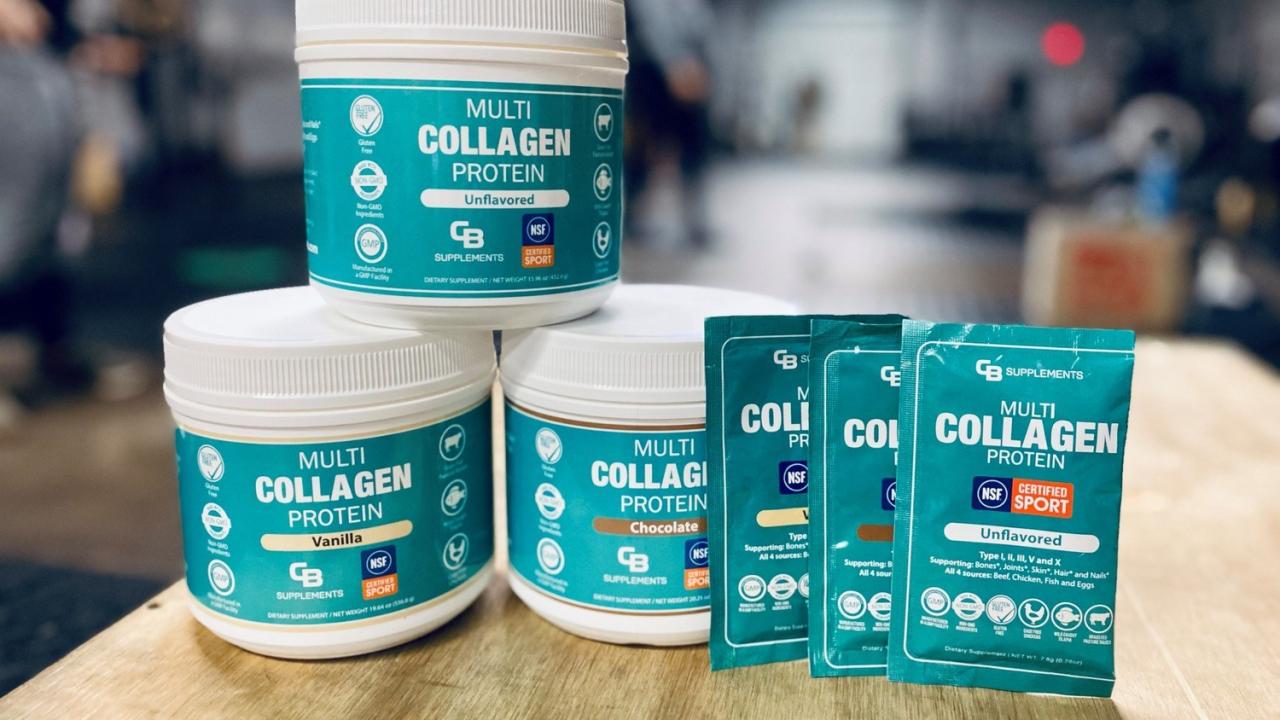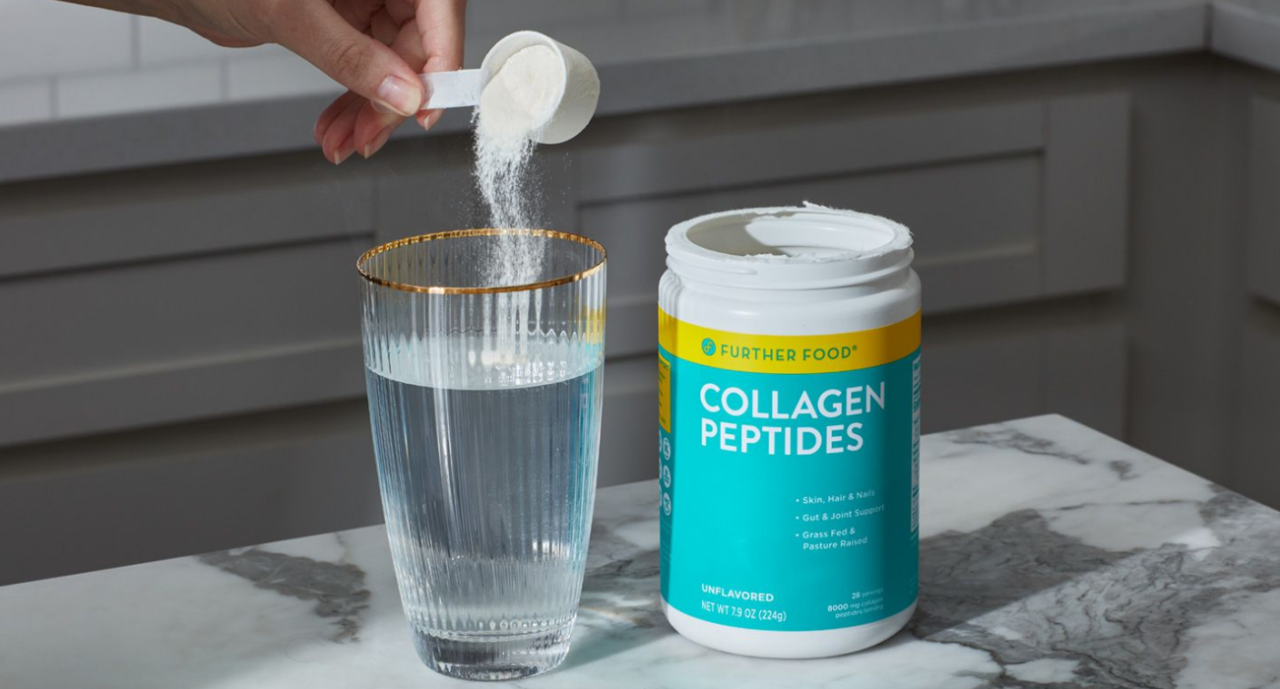Collagen supplements and their interaction with medications: a topic as fascinating as it is potentially fraught with peril (or at least, a slightly upset stomach). Are you picturing yourself, a superhero fueled by collagen, suddenly developing unexpected superpowers…or maybe just a mild rash? The truth, as always, is more nuanced than a comic book, but equally compelling.
This exploration delves into the world of collagen, those miracle workers promising youthful skin and gleaming joints, and how they might tango (sometimes a little awkwardly) with your existing medication regimen. Buckle up, it’s going to be a wild ride!
We’ll uncover the secrets of different collagen types, their absorption rates (because not all collagen is created equal!), and the potential pitfalls of mixing them with various medications. We’ll explore the science behind the interactions, separating fact from fiction, and equipping you with the knowledge to make informed choices about your health. Think of this as your personal guide to navigating the sometimes-tricky world of collagen supplementation – a world where knowledge is power, and informed decisions are the ultimate superpower.
Collagen Supplements: A Deep Dive into Types, Interactions, and More: Collagen Supplements And Their Interaction With Medications
Collagen, the body’s most abundant protein, is the unsung hero of youthful skin, strong joints, and healthy bones. But with a dizzying array of collagen supplements flooding the market, navigating the world of bovine hides and hydrolyzed peptides can feel like trying to assemble IKEA furniture blindfolded. This article aims to illuminate the often-murky waters of collagen supplementation, exploring its various types, absorption, potential interactions with medications, and more, all with a dash of humor (because who needs more seriousness in life?).
Collagen Supplement Types: A Colorful Cast of Characters

Collagen comes in various types, each with its own unique properties and purported benefits. Think of it like a superhero team, each member specializing in a different area of body maintenance. We’ll explore the most common types, their sources, and the manufacturing processes behind them.
| Type | Source | Benefits (Purported) | Potential Side Effects |
|---|---|---|---|
| Type I | Bovine hide, chicken skin, pig skin | Skin elasticity, hair and nail strength, bone health | Mild gastrointestinal upset (rare) |
| Type II | Chicken cartilage | Joint health, cartilage support | Allergic reactions (rare, mostly in individuals with pre-existing allergies) |
| Type III | Bovine hide, chicken skin | Skin elasticity, wound healing, vascular health | Mild gastrointestinal upset (rare) |
| Type V | Various sources (often combined with other types) | Supports the structure and function of other collagen types | Generally well-tolerated |
Manufacturing processes generally involve extraction from animal sources, hydrolysis (breaking down into smaller peptides for better absorption), and purification to remove impurities. Think of it as a culinary adventure, but instead of spices, we’re talking enzymes and filters.
Collagen Absorption and Bioavailability: A Race Against Time, Collagen supplements and their interaction with medications

Once you’ve swallowed that collagen supplement, the real adventure begins – the race to absorption. Several factors influence how well your body utilizes this protein. Let’s delve into the fascinating world of bioavailability.
The body absorbs collagen peptides primarily through the small intestine. Hydrolyzed collagen, with its smaller peptide chains, generally boasts better absorption compared to non-hydrolyzed forms. However, factors like dosage, individual gut health, and even the form of the supplement (powder, capsules, etc.) can all play a role. Scientific evidence regarding bioavailability is still evolving, with some studies showing promising results while others require further investigation.
It’s a bit like a detective novel, with clues scattered throughout research papers.
Potential Interactions with Medications: Navigating the Drug-Supplement Landscape

While generally considered safe, collagen supplements can potentially interact with certain medications. It’s crucial to understand these interactions to avoid any unforeseen consequences. Think of it as a delicate dance – the collagen and medication need to waltz together harmoniously.
Specific examples and mechanisms of interaction are still under investigation. However, theoretical interactions could arise due to the impact on blood clotting (with anticoagulants) or liver/kidney function. More research is needed to fully understand the potential implications.
Collagen and Blood Thinners: A Cautious Approach
The potential interaction between collagen supplements and anticoagulants or antiplatelet medications is a key area of concern. Since collagen might theoretically influence blood clotting, it’s crucial for individuals on blood thinners to consult their physician before incorporating collagen supplements into their routine.
- Consult your doctor before using collagen supplements if you’re on blood thinners.
- Monitor for any unusual bleeding or bruising.
- Be aware that the interaction might be indirect and depend on other factors.
Collagen and Medications Affecting Liver or Kidneys: A Sensitive Balance
Individuals with pre-existing liver or kidney conditions should approach collagen supplementation with caution. Collagen metabolism might be affected by impaired organ function, potentially leading to complications. Always consult a healthcare professional before starting any new supplement regimen if you have these conditions.
- Statins: Some research suggests a potential, though not definitively proven, interaction. Further studies are needed.
- ACE inhibitors: No significant interactions have been established yet.
- Diuretics: No known major interactions, but individual responses may vary.
Collagen and Other Supplements/Nutrients: Synergistic or Antagonistic Effects?
The combination of collagen with other supplements or nutrients can either enhance or hinder its effects. Think of it as a culinary masterpiece – the right ingredients create a symphony of flavors, while the wrong ones can lead to a culinary disaster.
| Supplement/Nutrient | Potential Interaction |
|---|---|
| Vitamin C | Positive; enhances collagen synthesis |
| Hyaluronic acid | Positive; synergistic effects on joint health and skin hydration |
| Other proteins | Potentially competitive absorption; may require adjustment of dosages |
Adverse Effects and Precautions: A Word of Caution
While generally safe, collagen supplements can cause some adverse effects in certain individuals. It’s essential to be aware of these potential issues and take appropriate precautions.
- Gastrointestinal distress: Nausea, bloating, or diarrhea can occur, especially with higher doses.
- Allergic reactions: Although rare, allergic reactions are possible, especially in individuals with pre-existing allergies to animal products.
- Interactions with medications: As previously discussed, potential interactions with certain medications warrant caution.
Individuals with known allergies or underlying medical conditions should consult their healthcare provider before taking collagen supplements. Starting with a lower dose and gradually increasing it can help minimize the risk of adverse effects. Remember, moderation is key, even with supplements promising a fountain of youth.
Last Point
So, there you have it – a whirlwind tour of collagen supplements and their potential interactions with medications. Remember, while collagen offers a plethora of purported benefits, it’s crucial to approach supplementation with caution and always consult your doctor or pharmacist before incorporating any new supplement into your routine, especially if you’re on medication. Don’t let the allure of youthful skin lead you into a medical mishap! Armed with knowledge, you can harness the potential benefits of collagen while minimizing any risks.
Now go forth and glow (responsibly!).
